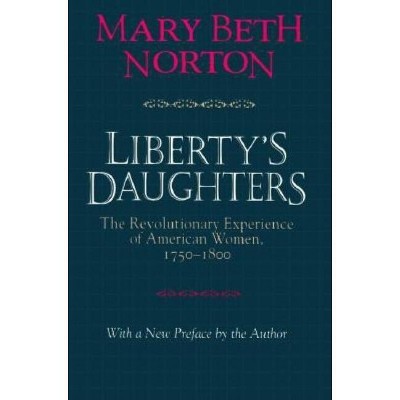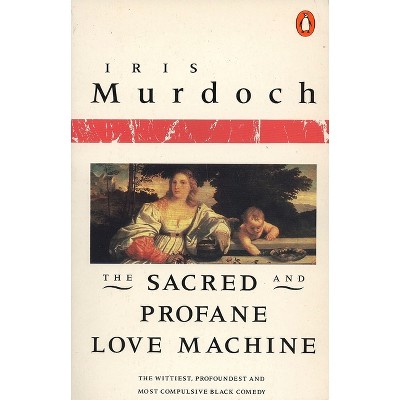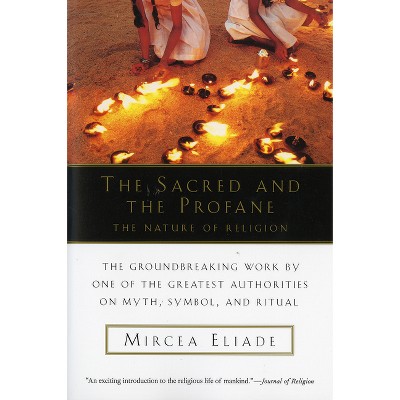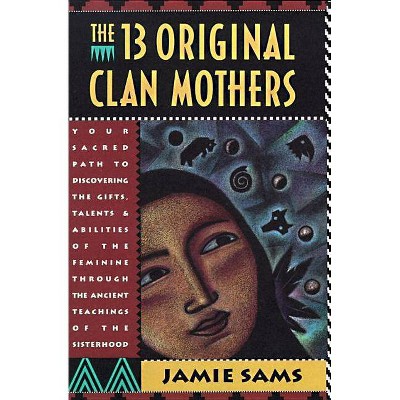Sponsored

Sacred Gifts, Profane Pleasures - by Marcy Norton
In Stock
Sponsored
About this item
Highlights
- Before Columbus's fateful voyage in 1492, no European had ever seen, much less tasted, tobacco or chocolate.
- About the Author: Marcy Norton is Associate Professor of History at George Washington University.
- 352 Pages
- Social Science, Agriculture & Food
Description
About the Book
Before Columbus's fateful voyage in 1492, no European had ever seen, much less tasted, tobacco or chocolate. Initially dismissed as dry leaves and an odd Indian drink, these two commodities came to conquer Europe. This book explores that process.
Book Synopsis
Before Columbus's fateful voyage in 1492, no European had ever seen, much less tasted, tobacco or chocolate. Initially dismissed as dry leaves and an odd Indian drink, these two commodities came to conquer Europe on a scale unsurpassed by any other American resource or product. A fascinating story of contact, exploration, and exchange in the Atlantic world, Sacred Gifts, Profane Pleasures traces the ways in which these two goods of the Americas both changed and were changed by Europe.
Focusing on the Spanish Empire, Marcy Norton investigates how tobacco and chocolate became material and symbolic links to the pre-Hispanic past for colonized Indians and colonizing Europeans alike. Botanical ambassadors of the American continent, they also profoundly affected Europe. Tobacco, once condemned as proof of Indian diabolism, became the constant companion of clergymen and the single largest source of state revenue in Spain. Before coffee or tea became popular in Europe, chocolate was the drink that energized the fatigued and uplifted the depressed. However, no one could quite forget the pagan past of tobacco and chocolate, despite their apparent Europeanization: physicians relied on Mesoamerican medical systems for their understanding of tobacco; theologians looked to Aztec precedent to decide whether chocolate drinking violated Lenten fasts.The struggle of scientists, theologians, and aficionados alike to reconcile notions of European superiority with the fact of American influence shaped key modern developments ranging from natural history to secularization. Norton considers the material, social, and cultural interaction between Europe and the Americas with historical depth and insight that goes beyond the portrayal of Columbian exchange simply as a matter of exploitation, infection, and conquest.
Review Quotes
Sacred Gifts, Profane Pleasures shows how the exchange between alien civilizations prefigured a revolution in taste that was both genuinely global and largely independent of the power dynamics of colonialism.... Norton creatively uses a wide range of sources, from Mayan artwork to early modern medical manuals to Inquisition records, to show how two frequently consumed substances were integrated into European consciousness and diet.
--Gabriel Paquette "Times Literary Supplement"In documenting the reception of chocolate and tobacco among Europeans, Norton gives particular emphasis to the social nature of consumption. Both products were intimately tied with indigenous rituals, although tobacco came to be viewed in a more negative light as diabolically inspired, while chocolate, the drink of indigenous lords, was associated with the emerging image of the noble savage. And it was through social interactions that Europeans acquired these cultural practices, notwithstanding their pagan connotations.
--Jeffrey M. Pilcher "The Americas"Norton eloquently describes the 'contact zones' in the New World where chocolate was consumed, as in marriage celebrations, village markets, and in religious establishments, while also discussing the sixteenth-century worries about persistent Indian idolatry or religious backsliding from conversion that set the scene for theological directives against European use of tobacco and chocolate. She is on still firmer ground in assigning to early Spanish-native encounters the origin of what was to become a lasting trope among Europeans: tobacco's association with barbarism, chocolate's with effete civilization, and both with diabolism. The most interesting and sharply drawn parts of the study, in fact, deal with the sensual mythology and medical appreciations of these New World products--with the history of European perceptions of them, in other words.... The book realizes its broad ambition to portray the European romance with tobacco and chocolate both in the New World and the Old, and to do it in an eloquent and sophisticated way.
--Eric Van Young "International History Review"Rarely does religious history figure as prominently in a study of commodity culture as it does in Marcy Norton's Sacred Gifts, Profane Pleasures. The very title points to the central paradox at the heart of this book: tobacco and chocolate were used in Amerindian societies for primarily religious purposes before their contact with the Spanish and other European empires, but over the three centuries following first contact between the old world and the new, tobacco and chocolate came to be commodities that could be consumed as secularized luxury products. Norton's deeply researched and insightful work offers a salutary reminder that the Spanish and Portuguese empires were the first to encounter and assimilate exotic commodities such as tobacco and chocolate into their consumption repertoires.
--Brian Cowan "Journal of American History"Three days after setting foot on the island of Guanahani, Christopher Columbus noticed that the natives seemed to hold certain dried leaves in high esteem. A few days later his shipmates reported that men and women walked about with a 'smoking tube' to take in a fragrant aroma they were apparently fond of. Another exotic New World commodity was rather more dramatically introduced by the conqueror Bernal Díaz del Castillo, who was present at the famous dinner in the still intact Aztec capital Tenochtitlín in 1519, where 'beautiful and clean' women served Moctezuma and his entourage 'fifty large jars of foaming cacao.' The rest, as Marcy Norton shows in her superior and fascinating book, is history. Although framed within a clear understanding of political economy, Norton's study is fundamentally concerned with the cultural dimensions of her commodities. The book seeks to explain why tobacco and chocolate, shunned by Europeans for most of the first century following Columbus's landfall, subsequently became so enthusiastically accepted. Few other writers have probed so deeply and gracefully into the cultural explanations for consumption in Latin America and the world; and no one, I believe, has employed such a range of archival evidence, a most impressive bibliography in several languages, and adroitly chosen ancient images and illustrations. Finally, Norton presents her exhaustive argument (without exhausting the reader) in lucid and polished prose.
--Arnold Bauer "American Historical Review"What does it really mean to consume tobacco or chocolate? The question should be central to recent historians' interest in consumption and the world of goods. Yet most of us attempt to answer by describing how or why an item was consumed. If it is a psychoactive substance like tobacco or chocolate, the answer will often dwell on its biological effects. Marcy Norton, in this ambitious and impressive book, also tries to locate these goods in the conceptual frameworks of the cultures that consumed them. Her history of tobacco and chocolate in the Atlantic world, from the Spanish encounter through the seventeenth century, provides a fascinating model of how historians can look at and listen to consumption.
--Tom Brennan "Journal of Social History"About the Author
Marcy Norton is Associate Professor of History at George Washington University. She is the Associate Editor of Tobacco in History and Culture: An Encyclopedia.











